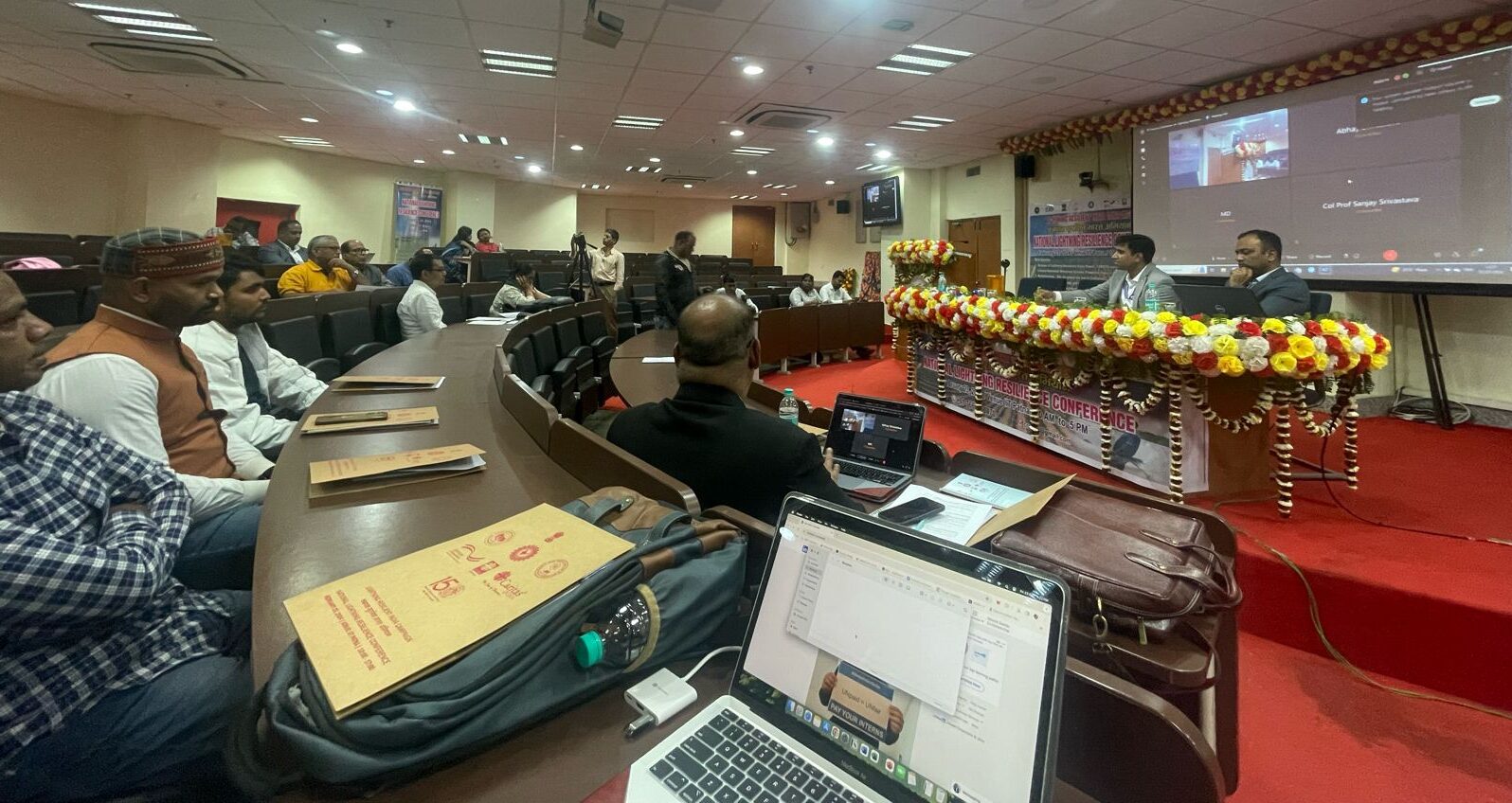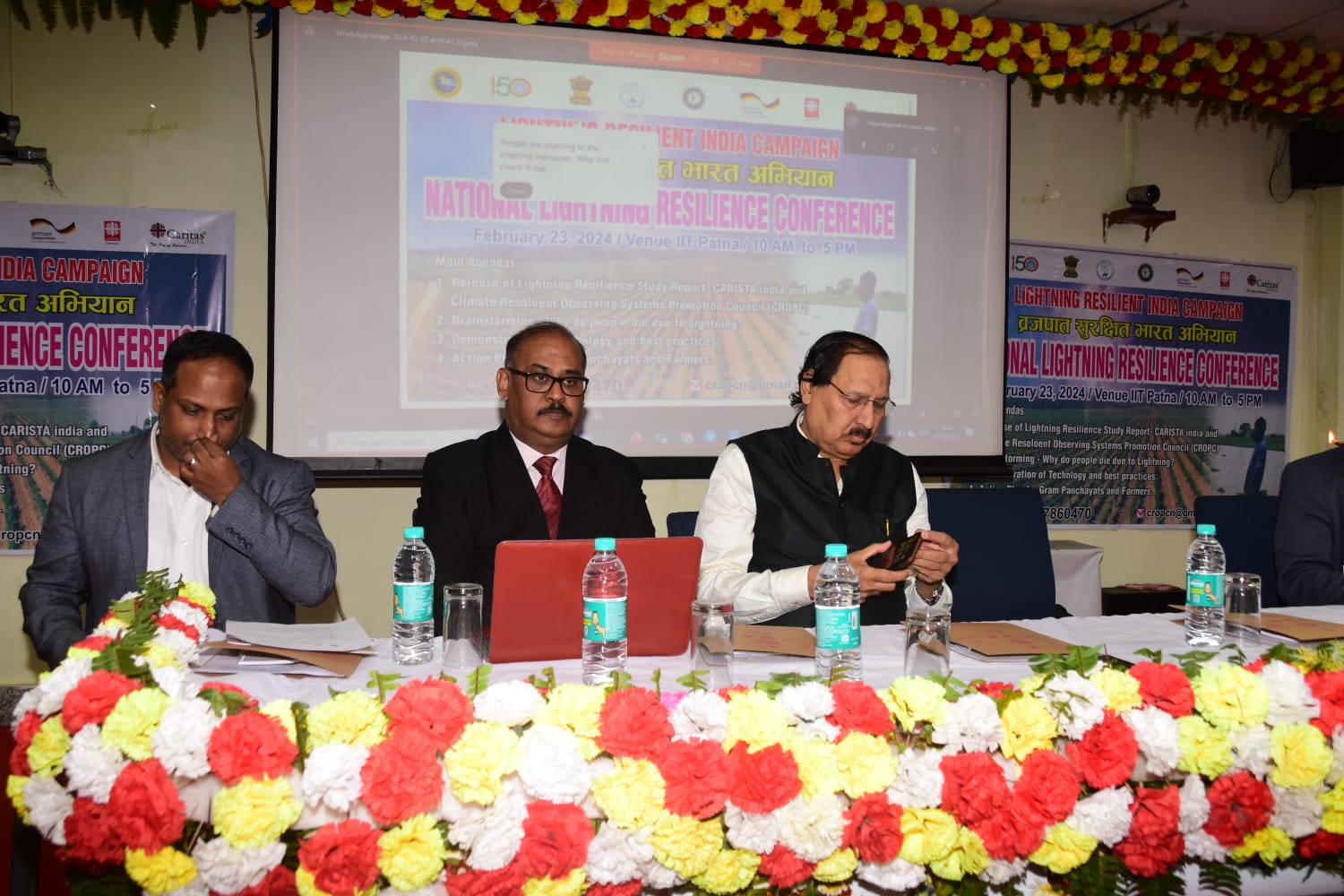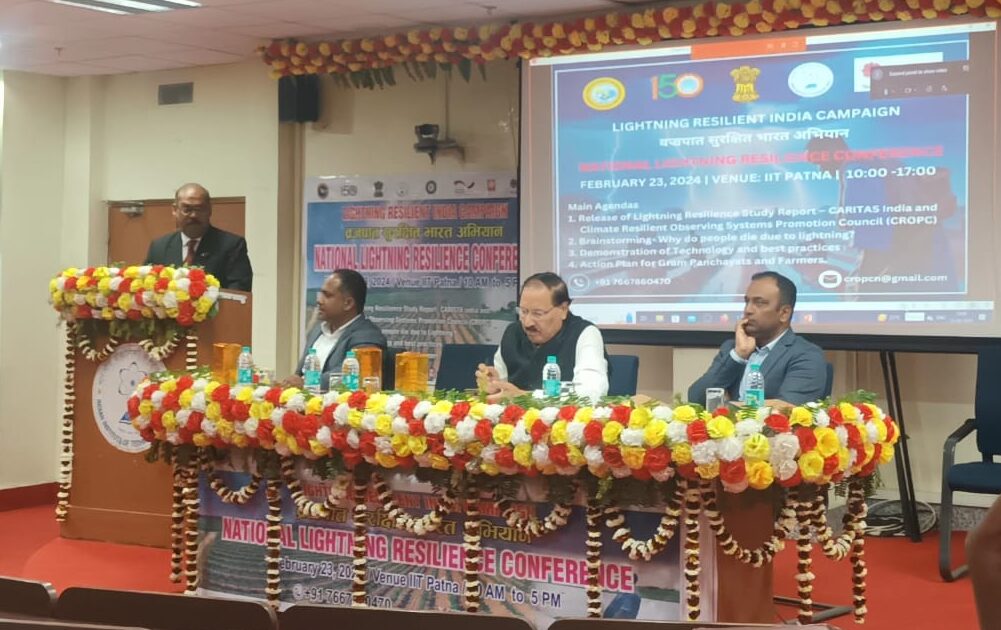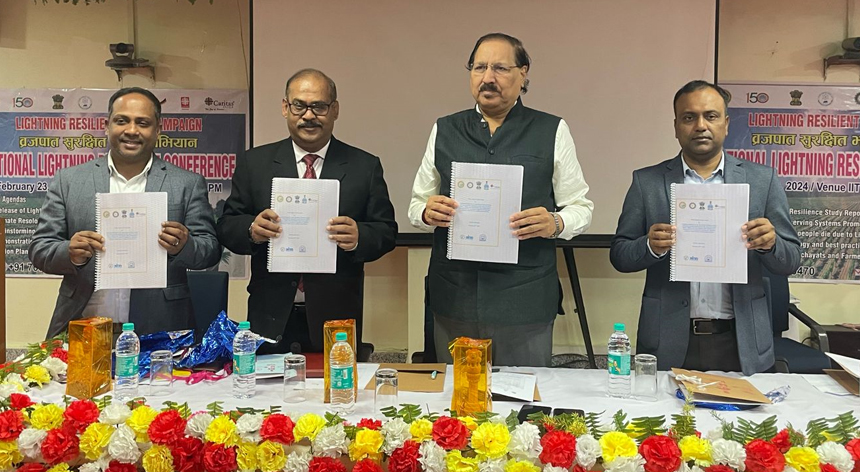To address the critical issue of lightning hazards in India, the National Conference on Lightning Resilience was recently concluded at the Indian Institute of Technology (IIT), Patna. The conference was an outcome of the collaboration between Caritas India, the Climate Resilient Observing Systems Promotion Council (CROPC), the India Meteorological Department (IMD), and the Bihar State Disaster Management Authority (BSDMA), which brought together experts, stakeholders, and organizations committed to developing effective strategies to reduce mortality due to lightning.
The conference, held at the IIT Patna Auditorium on February 23, 2024, served as a platform to release the Lightning Resilience Study Report, a collaborative effort between Caritas India and CROPC. The report shed light on the persisting challenges and outlined key recommendations to mitigate the impact of lightning events. The event also witnessed a workshop to develop a master action plan at the Gram Panchayat level, involving participants from various sectors, including Disaster Management Authorities, Meteorological Departments, NGOs, and academic institutions.
The conference began by addressing the urgency of the issue, acknowledging the relentless efforts by national and state-level disaster management agencies, private companies, and NGOs in the face of rising lightning-related deaths. The NCRB reports for the year 2022 revealed alarming statistics, with 82% of the 2,887 lightning-related deaths occurring in the age group of 18 to 60 years. This grim reality, especially prevalent in rural areas, propelled the need for collective action.
One of the key highlights was the release of the Lightning Resilience Study Report 2023, a comprehensive document based on field-level studies conducted in five eastern states—Assam, Bihar, Jharkhand, Odisha, and West Bengal. The report not only provided insights into the current scenario but also outlined effective strategies for lightning resilience. Caritas India through its Global Program has done commendable work in disaster risk reduction, especially in Bihar by introducing localized solutions in the form of lightning arresters.

The workshops and technical sessions were designed to encourage brainstorming on the sudden rise in lightning-related deaths. Participants, including representatives from NDMA, IMD, NRSC, IITM, and various NGOs, engaged in discussions on national, state, district, and grassroots levels. Scientific knowledge, early warning systems, and vulnerability maps were critically reviewed, with a focus on the success and failures of initiatives by NGOs and CSOs at the grassroots level.

The conference featured esteemed speakers delivering insights and global perspectives on lightning resilience. Dr. Jaison Varghese, Senior Program Lead-Global Program, Caritas India, provided a special address, shedding light on lightning initiatives, including Caritas India’s and the #WeForResilience Campaign. Colonel Sanjay Shrivastava, Chairman of CROPC, delivered the technical address, providing attendees with crucial insights.
The conference also saw the formulation of Gram Panchayat master plans for lightning risk mitigation and prevention, tailored to the specific needs of each Gram Panchayat. These plans are expected to serve as a roadmap for collaborative efforts among various stakeholders, identifying roles, responsibilities, and points for coordination and communication.

To enhance public awareness, the conference delved into Lightning Public Alert Systems and Public Awareness Campaigns. Experts discussed the development and implementation of lightning public alert systems and the concept of lightning-safe shelters. Caritas India shared insights into low-cost lightning protection devices, further emphasizing the importance of timely warnings and preparedness.
The final technical session showcased innovative approaches and technologies to bolster lightning resilience. Dr. Arijit Roy from IIT Patna presented the Lightning Alert device NITISH, a cutting-edge technology promising real-time alerts and proactive measures to protect lives and property.

The conference concluded with insights into the Lightning Resilience Framework developed by CROPC and Caritas India. This structured approach addresses the challenges posed by lightning events and integrates seamlessly into existing resilience strategies. This is one of the macro-level milestones of the Global Program on disaster prevention at the state and district level.
The National Conference on Lightning Resilience not only served as a platform for knowledge exchange but also reinforced the collective commitment to building resilience against lightning disasters. The insights garnered from the conference will undoubtedly contribute to the development of effective strategies, ensuring the safety and well-being of communities across India.


Leave a Reply